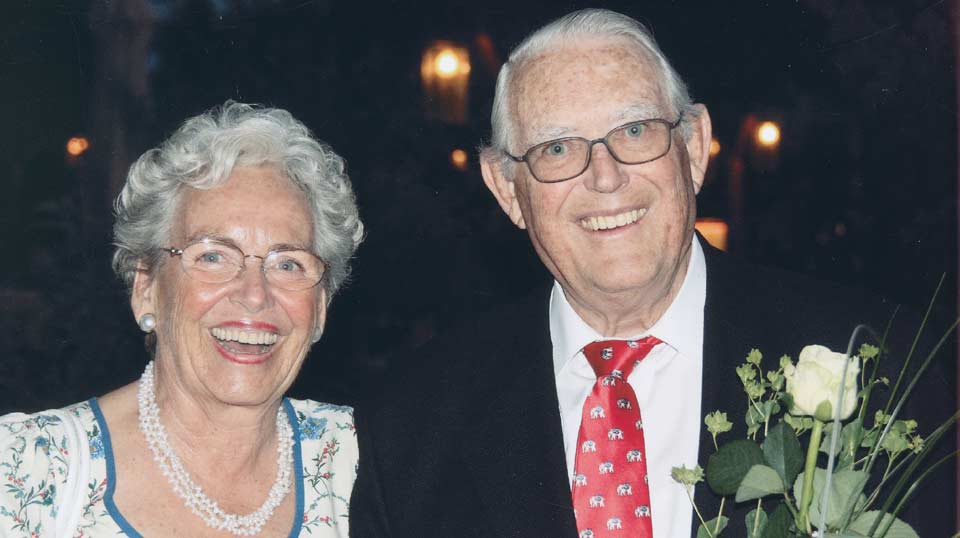One of the pioneers of environmentally sensitive business people: Who is Erivan Haub?
German industrialist Haub turned the Tengelmann Group into one of the largest multi-branch store chains (center of gravity on food) in the world. At the time of his death in March 2018, his net worth was estimated at US$6.4 billion.

Haub, who was once considered the richest man in Germany, repeatedly drew attention to his business with his environmental protection movements.
He was born in Mülheim an der Ruhr, the son of a wealthy farm owner. His mother belonged to an entrepreneurial family called Schmitz-Scholl, who started working in a wholesale grocery company in 1867 and founded the Schmitz-School/Tengelman group of companies.
The headquarters of this company was the Wilhelm Schmitz-Scholl (Wissoll) Chocolate and Confectionery Factory.
Erivan Karl Matthias Haub (29 September 1932 – 6 March 2018) was a German billionaire businessman, and the managing director and part owner of Tengelmann Group, one of Germany's largest retailers. At the time of his death in March 2018, his net worth was estimated at US$6.4 billion.
Haub, who completed his international trade education at Tengelmann, did a one-year internship at the Jewel Tea Company in Chicago, and then moved to Alpha-Beta Company in La Habra, California, for another year in 1953.
He completed his higher education in economic sciences, which he started in Hamburg in 1954, with a diploma from the University of Mainz in 1958. He had three sons with Helga Otto, whom he married in the same year. After interning with a real estate agent and at Commerzbank, he got a job in his family's Tengelmann Group in Wiesbaden, the capital of the state of Hesse, in 1963.
When his uncle Karl Schmitz-Scholl, manager of the Tengelmann Group, died in 1969, Haub became the sole partner of the company. He enabled the company to grow rapidly in the following years. Thus, in 1971, it acquired the majority of the shares of Kaiser's Kaffeegeschaeft AG, and a year later, it managed to enter the neighboring Austrian market by taking over the Löwa Warenhandel GmbH company.
Haub joined the USA in 1979. He became a partner in the Great Atlantic and Pacific Gas Company (A&P), the oldest food chain in the world, and eventually owned more than half of the company's shares.
In the 80s, he established company partnerships and took over some companies in the Netherlands, Italy, and Hungary.
Store Chains of the Tengelmann Group in Germany:• Co-op (Southwest Branch Network, foodstuffs)• Gubi (Nutritories)• Grosso (Supermarket)• Ingrid S. (Fashion)• Kaiser's Kaffegeschaeft (Nutritionals)• kd (Drugstore) • Magnet (Supermarket) • Obi (Construction and home needs markets) • Plus (Brand Discount) • Rudis Reste Rampe (Non-nutrient discount sales) • Takko Mode Maerkte (Fashion)
Haub's mother had struggled to establish environmental protection on legal grounds in the late 60s and had established a suitable fund for this purpose. Haub continued this work in 1984 and became the first entrepreneur to include environmental actions in his store chains.
It removed turtle soup and frog legs from its sales range. He drew attention to the animal protection movement with the posters he hung in his stores. Stores affiliated with the Tengelmann Group removed detergents containing phosphate from their sales program after 1987, sprays containing FCKW after 1988, and only offered batteries that did not contain mercury after 1990.
For his environmental efforts, Haub was named “Ecological Manager of the Year” by the World Wildlife Fund that same year. Haub also resorted to new methods in terms of working hours and implemented the so-called 4/5-day week system in 1991, which he saw as a model in retailing. Salesmen with full-time contracts rotated four or five days a week. In this way, they had more frequent free days and long weekends.
At the beginning of the 90s, the Tengelmann Group had approximately 6,500 sales points in Germany alone, with a worldwide turnover of approximately 47 billion DM (within Germany turnover of 21 billion DM). After long negotiations with Asko Deutsche Kaufhaus AG, Haub took over its southwestern branch network in 1992. In addition to these store chains, the Wissoll confectionery production business, which is among the largest in Europe, also grew.
Haub, who was considered the richest man in Germany with a fortune estimated at DM 9 billion, did not like to be in the spotlight. In the mid-90s, he announced that he would step down from company management in favor of his sons.
